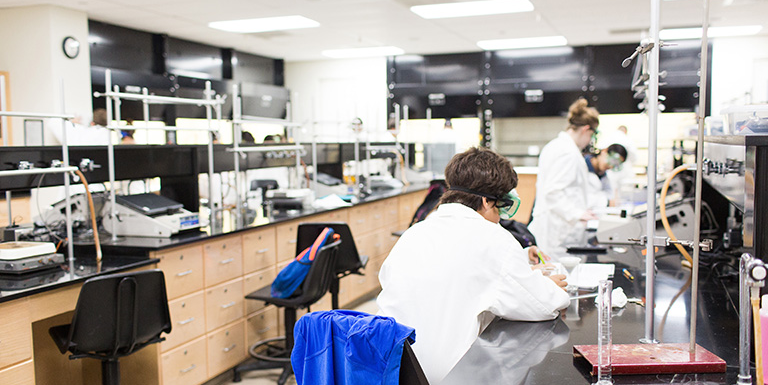Guided Pathways to Success: A Game Changer for Midland College

Midland College (MC) has been named as a Cadre 1 community college to participate in an integrated statewide approach to student success. For the past two years, MC has been designing and implementing a pathways model with clear, educationally coherent program maps that are aligned for program completion, quality credentials, workforce skills, and transferability for baccalaureate and graduate degrees. As a result of MC’s efforts, the college has been recognized as a leader in the Texas Success Center’s Texas Pathways initiative, and the MC developmental math program has been named as exemplar in its efforts to redesign curriculum for the new pathways approach.
Increasing levels of postsecondary educational attainment among Texas young people has become imperative. The opportunity for quality employment and a rewarding adult life largely depends on completing a postsecondary academic credential. The state’s Higher Education Strategic Plan calls for 60 percent of 25- to 34-year-old Texans to hold a quality certificate or degree by 2030; currently, only 38 percent of young Texans have a postsecondary credential.
In fall 2016, more than half of Midland College students indicated that their goal at MC is to obtain a degree.
Statistics indicate that nationwide, only 9.5 percent of students entering a two-year college will graduate within three years. According to the Midland College Office of Institutional Research, the average time for MC students to earn an associate degree is 3.6 years and 80 semester credit hours.
The following table depicts graduation rates and certificate completion rates in 2014-2015 for students who began their higher education studies at MC.

The longer it takes students to graduate, the more it costs students and the taxpayers who subsidize them. An extra semester of college costs Midland College students almost $1,500.
Spending money isn’t the only consequence of running the clock. The longer it takes students to graduate, the more life gets in the way. As the calendar turns, students find their lives increasingly taken over by jobs, relationships, marriages, children, and mortgages. For too many students, the end results are a few years of courses and no degrees, resulting in poor wages and unrewarding careers.
In a time when only about half of today’s college students in the U.S. graduate and when our nation faces a skills gap that holds us back and threatens our future, we need strategies that will enable students to attain higher education goals and successful careers.
“Approximately two years ago, we saw the need to redesign processes so that students have a clear direction and path in their higher education goals,” explained MC President Dr. Steve Thomas. “We decided it was time for game changer strategies that will permanently send completion rates upward. We did extensive research as to how we could best empower our students for this goal attainment. Employee teams have been researching and planning these strategies through a program titled Guided Pathways to Success.”
As a result, the college restructured all of its programs of study into eight major areas of interest from which students can choose a degree path. Thomas noted that the restructuring is a cultural shift for the college, and has even prompted the development of the Support Our Students (SOS) network. The SOS project is employee driven and provides counseling, mentoring, and financial support to students.
“The new pathways model has forced us to look at and refine not only instructional components, but also systems and services, such as advising, Web services, admission, financial aid, and business office operations,” stated Thomas.
By building highly structured degree plans as pathways to on-time graduation, MC will place every student on the road to success. Students at Midland College are no longer considered unclassified, undeclared, or general studies majors. All students now know the way forward to graduation, and semester-by-semester plans are laid out for every student.
As part of the new Guided Pathways to Success initiative, Midland College is serving as a state leader in the development of new math curriculum for community colleges. As one of nine partner community colleges in a project coordinated through the Charles A. Dana Center at The University of Texas, the college designed a systemic approach to improving student success and completion in developmental math courses. The resulting curriculum developed by MC math faculty supports student career goals by implementing processes, strategies, and structures built around mathematics pathways. MC’s cutting-edge curriculum has laid the foundation for statewide implementation of the curriculum at other Texas community colleges.
MC Executive Vice President Dr. Richard Jolly said,
MC math faculty have worked diligently to develop practical math applications that focus on math for specific careers. Our outstanding math faculty teach these courses in a fun and engaging format. The result is that students who previously had to take as many as three developmental math classes are now able to score high enough on college entrance exams after completing just one semester of the new math curriculum.
While the college is still early in its implementation of the new pathways system, preliminary reports indicate that Midland College’s completion rates are improving. According to the MC Registrar’s Office and as indicated in the table below, the college had an increase of 16.5 percent in the number of certificates, associate degrees, and core completions from 2015 to 2016.

“We are certainly attributing this outcome to the collegewide pathways approach to instruction and advising, which includes assigned Pathways Advisors and collaborative and intentional processes for offering courses, registering students for classes, and auditing degree plans,” said Midland College Dean of Enrollment Management Liz Zenteno. “This method has created a focused and intentional review of students’ coursework for their pathways, which has resulted in more students completing credentials.”
Rebecca C. Bell is Dean of Community Relations and Special Events at Midland College in Midland, Texas.
Opinions expressed in Innovation Showcase are those of the author(s) and/or submitting college and do not necessarily reflect those of the League for Innovation in the Community College.










